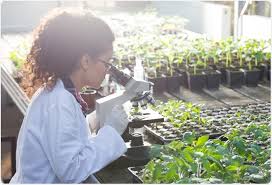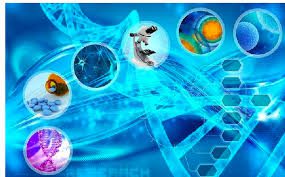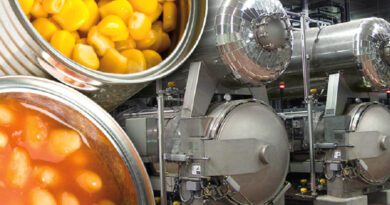Importance of Biotechnology
Everyone needs biotechnology, we can all agree that any effort that gives rise to more food, cleaner environment, less disease infections and better way of doing things is good for everyone.
It is reputed that biotechnology could be used to develop plant cultivars that are more productive and more resistant to pests. This will lead to significant improvement on the advances of the green revolution of the 60s and 70s on improved agricultural production.
However, while green revolution was driven by high-yielding plant varieties, agro-chemicals and new irrigation techniques that are harmful to the environment, biotechnology drives the new development through improved varieties of plant cultivars that are high-yielding but above all resistant to pests.
The less pesticide application required by biotechnology driven cultivars suggest more environmental friendly agriculture, less contamination, less pollution and overall healthier populations.
The improved environmental cleanliness and less disease potential are good for everyone especially children and pregnant women in the developing countries who are the most susceptible to pollution effects.
However, it must also be emphasised that biotechnology is not completely about food production. It is also used to produce biological weapons especially weapons of mass destruction.
The most common of these weapons is the anthrax. This is a disease of the lungs and intestines caused by exposure to the spores of Bacillus anthracis.
Biotechnology has been used to mass-produce this bacterium for sinister purposes. When and if this technology falls into wrong hands, it constitutes a risk and danger to government and the public.
Biotechnology can also be used in terrorism. In addition to the bombings and shootings, it can be used to send bacteria spores to unsuspecting citizens.
Biotechnology is also used in drug production and in the development of some body parts for transplant purposes; as a result, pharmacists, physicians and patients need it. Transplant patients are particular in dire need of biotechnology, as it is the only option to an endless queue for donor parts.
Recall that biotechnology is an applied biology that involves the use of living organisms in the fields of engineering, technology, medicine, agriculture, pharmacy, environmental management and many other useful areas of human development.
The importance of biotechnology therefore draws on the vital roles it plays to advance knowledge and practice in these areas.
In medicine and pharmacy, for instance, biotechnology is contributing immensely to the production of new and more effective drugs. It is also contributing to an entirely new ways of disease diagnosis and treatment.
One of the most important of this development is the use of DNA for plant breeding, genetic engineering and fingerprint to diagnose inherited disorders in both prenatal and newborn babies in medicine.
These disorders may include cystic fibrosis, hemophilia, Huntington’s disease, familial Alzheimer’s, sickle cell anemia, thalassemia, and many others. Early detection of such disorders enables the medical staff to prepare themselves and the parents for proper treatment of the child.

In some cases, genetic counselors use DNA fingerprint information to help prospective parents understand the risk of having an affected child. DNA fingerprint information can also help in developing cures for inherited disorders.
It is also useful in crime control. It helps to link suspects to biological evidence – blood or semen stains, hair or items of clothing – found at the scene of a crime.
Another important use of DNA fingerprints in the court system is to establish paternity in custody and child support litigation.
The US armed services have just begun a program to collect DNA fingerprints from all personnel for use later, in case they are needed to identify casualties or persons missing in action or for suspect verification. This is another form of biological banking, the best known of which is blood bank.
In agriculture, biotechnology has been used to increase crop production without significantly harming the environment. This is because biotechnology has been used to develop high yielding cultivars that depend less on fertilizers, pesticides and other agrochemicals.
Biotechnology is being applied to modify proteins in foods to increase their nutritional values and qualities. This will lead to less malnutrition and improved human well-being. It is also used to slow down the process of spoilage in fruits and crops.
This involves processes that delay ripening and slowing down of bacterial activities that lead to crops decay. This will give rise to fruits and crops with long shelf life allowing transportation to distant consumers without fear of decay.
In addition, it is used to improve taste, texture and appearance of fruits and crops. Biotechnology is also being increasingly used in the manufacture of several organic products such as beer and milk products.
Bacteria species are also used in the mining industry for bioleaching. This is the extraction of metals from their ores using bacteria. This process is more efficient and much cleaner than the traditional heap leaching that uses cyanide. Because of its increasing relevance, bioleaching is now recognized as one of most important components of biohydrometallurgy.
Today, it is applied as one of the most environmentally friendly methods used to recover copper, zinc, lead, arsenic, antimony, nickel, molybdenum, gold, silver, and cobalt. Biotechnology is also used to recycle and treat waste; cleanup sites contaminated by industrial activities, e.g. oil spill and point effluent discharge (constant discharge of industrial wastewater at particular point via pipes, channels or canals). It is therefore a vital component of bio- remediation.
On the negative side, biotechnology is used to produce very effective and deadly biological weapons such as anthrax. In fact, recent advances in bio-energy, bio-remediation, synthetic biology, DNA computers, virtual cell, genomics, proteomics, bioinformatics and bio- nanotechnology have made biotechnology even more powerful.
In summary, biotechnology is the application of biological and engineering methods to production processes. These methods are not completely new because they have been used for a very long time.
We have used living organisms of different kinds to solve problems without really calling it biotechnology. For instance, we ferment cassava and bake bread and other products at domestic and semi-industrial levels without really appreciating that we are practicing biotechnology.
In modern biotechnology, however, deliberate efforts are made to select living organisms of choice, alter their form and composition and decide how best to use them to achieve optimal set goals.
Biotechnology, however, may also be used for negative purposes as in the making of biological weapons of mass destruction. In spite of these negative implications, there is no doubt; biotechnology is an important development that will help many sectors of world economy move forward.
Read Also : Relevance of Biotechnology to Environmental Health
If properly applied, biotechnology also has the potential to make the world a better and healthier place to live.
Biotechnology is the use of living organisms or other biological systems and technological methods to make or modify products or processes for a specific purpose.
Environmental biotechnology is the application of biotechnological methods to remediate (improve) contaminated environments (land, air and water) everyone needs biotechnology because it is used at all levels, from households fermentation and processing of food materials e.g. cassava, manage human excreta and other wastewaters to large industries and hospitals wastewater management and disease diagnosis and treatment respectively.
Biotechnology has a wide range of application in agriculture, medicine, pharmacy and environmental management.
Biotechnology methods offer great potential for cost-effective, quick, sustainable and environmentally friendly remediation of contaminated sites.



